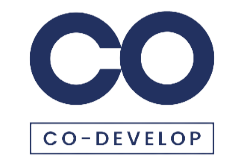Investing in the Media Foundation for West Africa (MFWA)
Enhancing public awareness, understanding and discourse of Digital Public Infrastructure in West Africa through increased professional media reporting
By Robert Karanja
Co-Develop is excited to announce an investment in the Media Foundation for West Africa (MFWA) in a program called the Co-Develop Africa DPI Journalism Fellowship Program. MFWA is an independent non-governmental media development and freedom of expression organization with a network of national partner organizations in all 16 countries in West Africa.
Governments in the region and around the world are taking on big, audacious projects towards digital transformation that affect the lives of the individuals in those countries, and yet there has been limited public awareness and discourse about this work, partly due to an absence of media coverage. The Co-Develop Africa DPI Journalism Fellowship Program seeks to enhance public awareness, understanding, and discourse of digital public infrastructure (DPI) in West Africa in order to shape and enhance DPI to be more safe, equitable, and inclusive. The Journalism Fellowship Program will work with 20 journalists from 10 West African countries with representation from Anglophone, Francophone, and Lusophone-speaking countries to build capacity and coverage on this critical topic.
The work will include two-intertwined strategies:
““The media are a key partner in the development of countries, societies and communities. Digital Public Infrastructure is no different. The media have the potential to bring attention to the important issues around DPI and Infrastructure thinking to catalyze digital transformation across Africa. This partnership goes a long way in advancing debate and discourse around DPI””
Building a cadre of journalists who are equipped to research and disseminate reporting that increases the public awareness, understanding, and participation in the DPI discourse across West Africa.
Partnering with media organizations across the region for the production and publication of stories/documentaries focusing on DPI and DPGs.
“The media are a key partner in the development of countries, societies and communities. Digital Public Infrastructure is no different. The media have the potential to bring attention to the important issues around DPI and Infrastructure thinking to catalyze digital transformation across Africa. This partnership goes a long way in advancing debate and discourse around DPI”, shared Robert Karanja, Senior Director for Africa at Co-Develop.
“This DPI partnership with Co-Develop is an intervention that has come at a crucial time when many countries in the West Africa region are developing policies and projects around Digital Public Infrastructure. The fellowship programme will indeed build the capacities of the media and journalists in the region to produce informative, compelling and critical stories around DPI to ensure it serves the needs of the public,” said Sulemana Braimah, Executive Director of Media Foundation for West Africa.
Across Africa, investments in digital transformation of economies and public service delivery are on the rise as many countries and organizations like the African Union and ECOWAS have published plans committed to building DPI. Almost all West African countries are implementing some sort of e-transformation project but there is little involvement of the public in these projects. This is mainly due to a lack of media coverage, which has resulted in limited public discourse – a critical component to building safe, equitable, and inclusive DPI.
With improved reporting and discussions within the DPI space, the goal is to encourage public awareness and public participation in the space, which can lead to greater insight, accountability and innovation around DPI across Africa.
